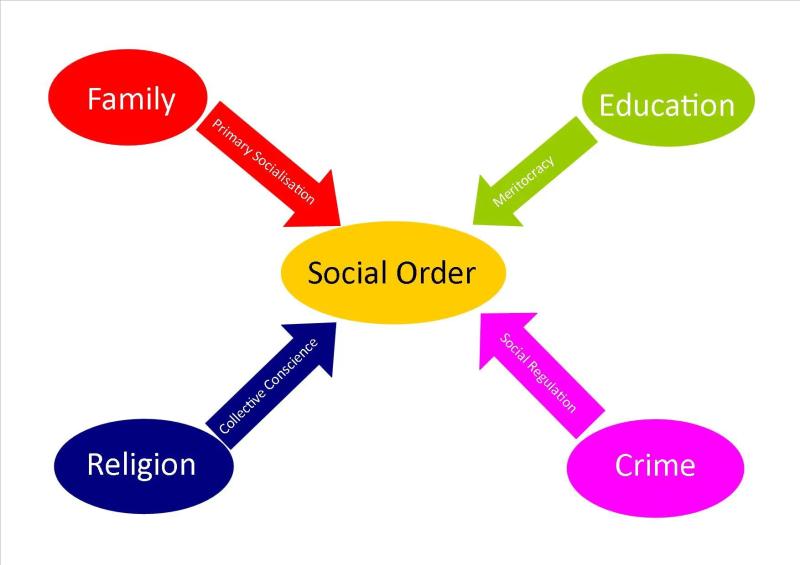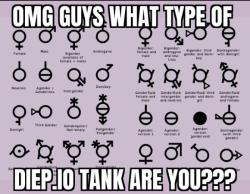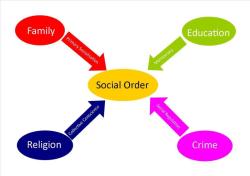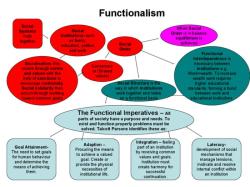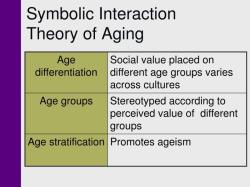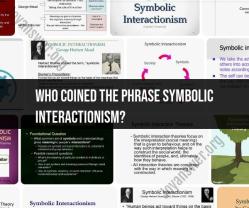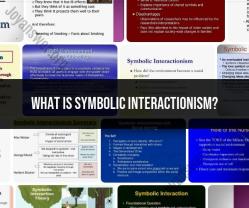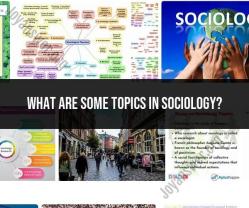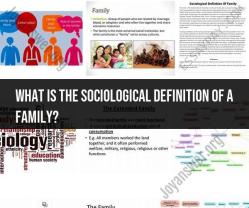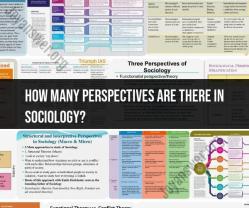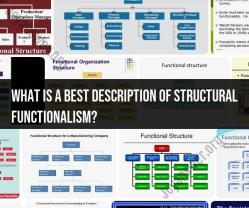What are the theories of functionalism?
Functionalism is a sociological perspective that views society as a complex system with interconnected parts, each serving a specific function to maintain overall stability and order. This perspective emphasizes the interdependence of social institutions and the role they play in maintaining equilibrium. Several key theories contribute to the understanding of functionalism:
Émile Durkheim's Functionalism:
- Émile Durkheim, a founding figure in sociology, developed the concept of functionalism. He emphasized the importance of social order and the integration of individuals into society. Durkheim identified two types of social solidarity: mechanical solidarity, based on similarities, and organic solidarity, based on interdependence in complex societies.
Talcott Parsons' Structural Functionalism:
- Talcott Parsons expanded on Durkheim's ideas and developed structural functionalism as a comprehensive sociological theory. Parsons identified four functional imperatives necessary for societal survival: adaptation, goal attainment, integration, and latency. He emphasized the role of social institutions in maintaining equilibrium.
Robert K. Merton's Strain Theory:
- Robert K. Merton extended functionalist theory with his strain theory, which explores the relationship between cultural goals and the means available to achieve them. Merton identified five adaptation modes: conformity, innovation, ritualism, retreatism, and rebellion, illustrating how individuals respond to societal expectations and constraints.
Kingsley Davis and Wilbert E. Moore's Functional Prerequisites:
- Davis and Moore proposed the functional prerequisites theory, which suggests that social stratification and inequality serve a purpose in society. They argued that certain roles are more crucial and demanding, requiring higher rewards to motivate individuals to pursue those roles. This perspective justifies social hierarchy as a means of ensuring the performance of essential functions.
Almond and Powell's Political Systems Theory:
- Gabriel Almond and Bingham Powell applied functionalism to political systems. They identified four functions of political systems: input functions (political socialization), conversion functions (decision-making), output functions (implementation of decisions), and feedback functions (adaptation and change).
Niklas Luhmann's Systems Theory:
- Niklas Luhmann expanded on functionalism with his systems theory, emphasizing the autopoietic nature of social systems. Luhmann proposed that social systems, including institutions and organizations, are self-referential and operate independently, contributing to societal stability.
Functionalism in Anthropology - Bronisław Malinowski:
- Bronisław Malinowski, an anthropologist, applied functionalism to the study of cultures. He focused on how cultural institutions and practices fulfill basic human needs and contribute to the stability of societies. Malinowski's functionalist approach became influential in anthropological research.
While functionalism has been influential in understanding social order and stability, it has also faced criticism for oversimplifying social dynamics, neglecting conflict and power relations, and not adequately addressing societal change. Despite these critiques, functionalism remains an important theoretical perspective in sociology, offering insights into the interconnectedness of social institutions and their contributions to societal functions.
Understanding Functionalism in Sociology: A Deep Dive
Functionalism is a major sociological perspective that views society as a complex system of interconnected parts, each functioning to maintain stability and order. Let's delve deeper into its core principles, applications, and critiques:
1. Foundational Theories:
- Emile Durkheim: Emphasized the importance of social solidarity and shared values for societal stability. He saw social institutions like family and religion as fulfilling vital functions for social cohesion.
- Talcott Parsons: Developed the "social action theory," viewing society as a system of interrelated subsystems (economy, polity, etc.) each performing essential functions for overall functioning.
- Robert Merton: Introduced the concepts of manifest functions (intended consequences) and latent functions (unintended but positive consequences) of social institutions. He also identified dysfunctions (negative consequences) that can disrupt social order.
2. Functions and Dysfunctions:
- Functionalism analyzes how social institutions like family, education, and religion contribute to society's stability and well-being.
- Examples: Education provides skills for the workforce, family socializes children, and religion offers meaning and social control.
- Dysfunctions occur when institutions fail to fulfill their intended functions or cause unintended harm. This can lead to conflict, inequality, and social disruptions.
- Example: Dysfunctional families neglect their child-rearing role, impacting individual development and social stability.
3. Variations and Sub-theories:
- Structural functionalism: Focuses on the structure and functions of social institutions.
- Conflict functionalism: Acknowledges social conflict but argues it can maintain order by promoting change and adaptation.
- Symbolic interactionism: Analyzes how individuals interact and interpret symbols to create shared meanings and maintain social order.
4. Contribution to Social Order:
- Functionalism highlights the interconnectedness of society's parts and the importance of institutions in maintaining stability and order.
- By understanding the functions and dysfunctions of institutions, we can identify areas for improvement and address social problems.
- The focus on shared values and norms provides a framework for understanding social cohesion and collective action.
5. Criticisms and Alternative Perspectives:
- Overemphasis on consensus and stability: Critics argue that it ignores conflict, power dynamics, and inequalities within society.
- Neglect of individual agency: Individuals are seen as passive actors fulfilling roles within the system, ignoring their ability to challenge and change it.
- Ethnocentrism: Accused of applying Western values and perspectives to diverse societies, overlooking cultural variations and unique social structures.
Alternative perspectives:
- Conflict theory: Emphasizes power struggles and competition between social groups as the driving force of social change.
- Feminist theory: Critiques the male-dominated perspective of functionalism and highlights gender biases and inequalities within social institutions.
- Postmodernism: Rejects grand narratives and universal explanations, focusing on fragmentation, individual experience, and the fluidity of social structures.
Understanding functionalism's strengths and limitations encourages critical thinking about social structures and our interactions within them. By considering diverse perspectives, we gain a more nuanced understanding of the complex dynamics that shape our world.
